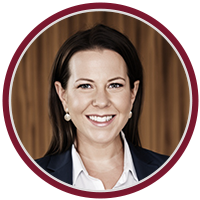When investors look at your financials, they’re not just checking your math. They’re asking themselves a deeper question: Can I trust you with my money?
If you’re a founder, you’ve probably experienced this moment: you’re mid-pitch, everything seems to be landing—until an investor flips to your financials and starts asking pointed questions. Suddenly, you’re on the defensive. “How did you come up with this CAC?” “Why does your headcount double by Q2?” “What’s your runway if revenue lags?”
These aren’t just gotcha questions. They’re trust tests.
And they happen all the time, especially in early-stage fundraising. Investors want to see that you not only understand your business inside-out, but that you’ve thought through how their capital will be used—and how it will multiply.
Even if you have strong traction or a compelling mission, shaky financials can raise red flags: misalignment with your pitch story, unrealistic goals, or missing key metrics. These gaps don’t just delay funding—they cast doubt on your leadership.
Here are the key questions your model should confidently answer:
1. Does this match the business story I just heard?
Your financial model and pitch deck should sing in harmony. If you tell a story of capital efficiency, but your model shows massive spend with low return, credibility crumbles. Align your model with your narrative.
2. Do I understand how you’ll reach your financial goals?
It’s not enough to show a hockey-stick graph. Investors want to know how you’ll get there. Does the model explain how user growth leads to revenue? How will your spend drive traction? The path must be visible and logical.
3. Are these goals reasonable for your stage and sector?
Every industry has its benchmarks. A $1M ARR goal in Year 1 might be aggressive for a deep tech startup, but conservative for SaaS with strong initial traction. Show awareness of your sector norms—and where you stand.
4. What does this investment actually buy?
Investors want clarity on use of funds. Are you clear on your runway? Can you hit your milestone? Are you proving out a GTM strategy? And—critically—what happens after this round? Your model should clearly show what the capital unlocks.
5. Do you know your key metrics?
If you don’t know your CAC, burn rate, or break-even point, you don’t know your business. A strong model shows that you’re tracking the numbers that matter.
6. Can you execute this plan?
Financial projections are your execution roadmap. Do your team, traction, and systems suggest you can keep them? Investors look for feasibility—not just ambition.
7. Will you be a good steward of capital?
Even great ideas fail without disciplined execution. A thoughtful, honest, well-structured model tells investors you’re ready to lead with both vision and responsibility.
Your model is more than an Excel sheet. It’s an audition for trust. Use it to show that you’re not just building a product—you’re building a business.
Investors don’t expect you to have all the answers—but they do expect clarity, strategy, and accountability.
If you’re not sure your financials are telling the right story—or if you’ve been getting investor pushback and don’t know why—let’s fix that.
👉 Book a free 30-minute consultation and get actionable feedback on your model. Together, we’ll make sure your numbers inspire confidence—not confusion.
Schedule My Free Consultation HERE.
-
About Author
Victoria Yampolsky is a serial entrepreneur, strategic CFO, startup advisor, and expert in financial modeling and valuation. She’s a passionate advocate for female founders and fair access to capital for all.
As the President and Founder of The Startup Station, a strategic CFO advisory firm and financial education platform for startups and small businesses, she has collaborated with over 150 founders across 15 industries, assisting them in raising more than $50M in venture capital funding.
Victoria has taught finance to over 20,000 entrepreneurs worldwide through The Startup Station’s courses on accounting, financial modeling, valuation, and startup finance, as well as through The Startup Station’s meetups, 15+ accelerators, and the Bank of America Institute of Women’s Entrepreneurship at Cornell. With veteran investor Jeanne M. Sullivan, she is now running the Fundraising Bootcamp for revenue-generating/MVP market-ready startups.
In 2023, Victoria represented New York State on the NSBA Leadership Council, advocating for fair access to capital for women. She is currently working to pass NY State Bill A09786 to promote diversity in venture capital.
Before venturing into entrepreneurship, Victoria spent nearly a decade on Wall Street in Deutsche Bank Research and IT Consulting at CapGemini.
Victoria holds a Bachelor’s degree, cum laude, in Computer Science with a minor in Mathematics from Cornell University, and an MBA, with honors, from Columbia Business School.
Still have questions?
We are happy to talk to you. Book a FREE 30-min consultation now by pressing the button below and, as a bonus, we will send you a COMPLIMENTARY financial health checklist.








 “Coming in with no formal background in financial modeling or accounting and as a first-time founder, I needed exactly this program. Victoria’s financial training covered startup accounting, investor-ready financials, key metrics, and break-even across common business models, presenting and analyzing financials, and term sheets and valuation, which finally made the numbers click. I built a working bottoms-up forecast, clarified our unit economics, and can now speak to the model with more confidence. Jeanne’s investing expertise clarified what investors actually care about, from pitch deck structure to effective cold outreach. Demo Day prep and the Demo Day pressure-tested the narrative and produced actionable feedback. The broader network, from go-to-market to legal, was generous and will remain a source of support. I’m leaving with a credible model, a sharper deck, a focused target list, and a clear plan I’m already executing!”
“Coming in with no formal background in financial modeling or accounting and as a first-time founder, I needed exactly this program. Victoria’s financial training covered startup accounting, investor-ready financials, key metrics, and break-even across common business models, presenting and analyzing financials, and term sheets and valuation, which finally made the numbers click. I built a working bottoms-up forecast, clarified our unit economics, and can now speak to the model with more confidence. Jeanne’s investing expertise clarified what investors actually care about, from pitch deck structure to effective cold outreach. Demo Day prep and the Demo Day pressure-tested the narrative and produced actionable feedback. The broader network, from go-to-market to legal, was generous and will remain a source of support. I’m leaving with a credible model, a sharper deck, a focused target list, and a clear plan I’m already executing!” “
“ “
“ “
“

 “If you’re raising capital and want to shine when pitching to investors, I highly recommend you choose Victoria Yampolsky and the Startup Station as your resource for high performance results. Victoria is extremely well versed in all aspects of raising capital and the startup landscape. She provides clients with outstanding tools, applicable advice and thoughtful insights to support their fundraising efforts.
“If you’re raising capital and want to shine when pitching to investors, I highly recommend you choose Victoria Yampolsky and the Startup Station as your resource for high performance results. Victoria is extremely well versed in all aspects of raising capital and the startup landscape. She provides clients with outstanding tools, applicable advice and thoughtful insights to support their fundraising efforts. “Victoria is a rare find in the startup world. She’s brilliant with startup financial strategies and has this no-nonsense work ethic that proves to deliver results. Victoria worked with a participant of 2020 Startups, a startup founder, and within a couple of months the founder raised capital. Victoria has done several workshops and speaking engagements at 2020 Startups and is always insightful and held in the highest regard by the audience.”
“Victoria is a rare find in the startup world. She’s brilliant with startup financial strategies and has this no-nonsense work ethic that proves to deliver results. Victoria worked with a participant of 2020 Startups, a startup founder, and within a couple of months the founder raised capital. Victoria has done several workshops and speaking engagements at 2020 Startups and is always insightful and held in the highest regard by the audience.” “These workshops are extremely useful for all of us. Victoria is the kind of presenter/professional who inspires confidence. I’d recommend her to any startup trying to figure out how it needs to be organized, capitalized, and operated to have a good business model going forward. She focuses on fundamentals, which, too often, are sorely lacking in our ecosystem, and she knows her stuff backwards and forwards”
“These workshops are extremely useful for all of us. Victoria is the kind of presenter/professional who inspires confidence. I’d recommend her to any startup trying to figure out how it needs to be organized, capitalized, and operated to have a good business model going forward. She focuses on fundamentals, which, too often, are sorely lacking in our ecosystem, and she knows her stuff backwards and forwards” “Victoria Yampolsky is THE essential tool for any startup looking to present a viable financial model! If you are a founder who, like me, lacks the business/finance background – YOU NEED HER. If you are looking to show your investors a serious plan for growth and capitalization – YOU NEED HER. Victoria’s thoroughness and dedication will ensure no stone goes unturned in the FOUNDATION of your BUSINESS. And to top it all, she explains everything with such calm & clarity, it is an absolute delight to be working with her.”
“Victoria Yampolsky is THE essential tool for any startup looking to present a viable financial model! If you are a founder who, like me, lacks the business/finance background – YOU NEED HER. If you are looking to show your investors a serious plan for growth and capitalization – YOU NEED HER. Victoria’s thoroughness and dedication will ensure no stone goes unturned in the FOUNDATION of your BUSINESS. And to top it all, she explains everything with such calm & clarity, it is an absolute delight to be working with her.” Liz Wald has 25+ years’ experience building company operations and mobilizing global teams in emerging, disruptive industries.
Liz Wald has 25+ years’ experience building company operations and mobilizing global teams in emerging, disruptive industries.
 Blair Severn is the Chairman and Co-founder of enabling ideas®, a Venture
Blair Severn is the Chairman and Co-founder of enabling ideas®, a Venture Victoria Yampolsky is a serial entrepreneur, strategic CFO advisor for numerous early-stage start-ups and expert in financial modeling and valuation. She’s a passionate advocate for female founders and fair access to capital for all.
Victoria Yampolsky is a serial entrepreneur, strategic CFO advisor for numerous early-stage start-ups and expert in financial modeling and valuation. She’s a passionate advocate for female founders and fair access to capital for all.
 Irina Sychov is an expert in voice, pitching, and fundraising and the Founder of ANIMA Women, a community supporting women in business. A five-time startup founder, she has extensive experience with family offices in London and Miami. Irina gained recognition for her dynamic presence on the British show X Factor, impressing judges like Simon Cowell, which sharpened her skills in audience engagement and self-marketing—essential tools in the business world.
Irina Sychov is an expert in voice, pitching, and fundraising and the Founder of ANIMA Women, a community supporting women in business. A five-time startup founder, she has extensive experience with family offices in London and Miami. Irina gained recognition for her dynamic presence on the British show X Factor, impressing judges like Simon Cowell, which sharpened her skills in audience engagement and self-marketing—essential tools in the business world.









 Marcia Dawood is an early-stage investor who serves on the Securities and Exchange Commission’s Small Business Capital Formation Advisory Committee. She is a venture partner with Mindshift Capital, a member of Golden Seeds, and the chair emeritus of the Angel Capital Association (ACA), a global professional society for angel investors.
Marcia Dawood is an early-stage investor who serves on the Securities and Exchange Commission’s Small Business Capital Formation Advisory Committee. She is a venture partner with Mindshift Capital, a member of Golden Seeds, and the chair emeritus of the Angel Capital Association (ACA), a global professional society for angel investors. Sanford is the Chief Strategy Officer of PowerUp Globally, a strategic and financial planning initiative aimed at revenue-generating seed-level female-led ventures.
Sanford is the Chief Strategy Officer of PowerUp Globally, a strategic and financial planning initiative aimed at revenue-generating seed-level female-led ventures. Irina Sychov – Founder of Women’s Business Community
Irina Sychov – Founder of Women’s Business Community  Thierry Vodounou, PMP, is Managing Director & Founder,
Thierry Vodounou, PMP, is Managing Director & Founder,  Victoria Yampolsky is a serial entrepreneur, strategic CFO advisor for numerous early-stage start-ups and expert in financial modeling and valuation. She’s a passionate advocate for female founders and fair access to capital for all.
Victoria Yampolsky is a serial entrepreneur, strategic CFO advisor for numerous early-stage start-ups and expert in financial modeling and valuation. She’s a passionate advocate for female founders and fair access to capital for all. “What I appreciated most about this program was the opportunity to stop during the work day and have an opportunity to reflect. In addition to having access to pre- and post-session materials that were profoundly useful (which I will undoubtedly go back to), being asked to stop, breathe, and process was a gift that carried throughout the day, week, and program. I recommend this program to any female founder or business owner in the midst of building her business.”
“What I appreciated most about this program was the opportunity to stop during the work day and have an opportunity to reflect. In addition to having access to pre- and post-session materials that were profoundly useful (which I will undoubtedly go back to), being asked to stop, breathe, and process was a gift that carried throughout the day, week, and program. I recommend this program to any female founder or business owner in the midst of building her business.” “Atending the Power Up Coaching pilot has been an absolute game-changer for me. Victoria and Hamp’s expertise, passion, unwavering support and genuine commitment to empowering women in the entrepreneurial space were evident in every session. Also, what truly made this journey unforgettable were the incredible women I met along the way. Sharing stories, challenges, and dreams with fellow entrepreneurs created a bond that transcended mere networking—it felt like finding a tribe where I truly belonged. It has equipped me with invaluable skills, insights, and a network of like-minded individuals who continue to inspire and support me on my entrepreneurial journey. The lessons learned and the connections made have become pillars of strength in my entrepreneurial journey, guiding me through the highs and lows with gratitude, grace and resilience. I know that the PowerUp Coaching program will always be more than just a program to me—it’s a part of my story, a chapter filled with growth, friendship, and empowerment. I’m immensely grateful to Victoria and Hamp and The Startup Station for helping me realize my potential as a woman entrepreneur.
“Atending the Power Up Coaching pilot has been an absolute game-changer for me. Victoria and Hamp’s expertise, passion, unwavering support and genuine commitment to empowering women in the entrepreneurial space were evident in every session. Also, what truly made this journey unforgettable were the incredible women I met along the way. Sharing stories, challenges, and dreams with fellow entrepreneurs created a bond that transcended mere networking—it felt like finding a tribe where I truly belonged. It has equipped me with invaluable skills, insights, and a network of like-minded individuals who continue to inspire and support me on my entrepreneurial journey. The lessons learned and the connections made have become pillars of strength in my entrepreneurial journey, guiding me through the highs and lows with gratitude, grace and resilience. I know that the PowerUp Coaching program will always be more than just a program to me—it’s a part of my story, a chapter filled with growth, friendship, and empowerment. I’m immensely grateful to Victoria and Hamp and The Startup Station for helping me realize my potential as a woman entrepreneur. “As a busy entrepreneur, I was drawn to PowerUp Globally Coaching Program’s focus on cultivating resilience, emotional intelligence, and a growth mindset for managing the inevitable stresses of building a business. From the first session, the small group size allowed a safe, supportive environment to openly discuss challenges.
“As a busy entrepreneur, I was drawn to PowerUp Globally Coaching Program’s focus on cultivating resilience, emotional intelligence, and a growth mindset for managing the inevitable stresses of building a business. From the first session, the small group size allowed a safe, supportive environment to openly discuss challenges.  “What a valuable experience!
“What a valuable experience! “Victoria really distilled down the financial model to the inputs that need to be discovered in order to determine business viability. Her attention to detail and experience show in taking those inputs and filling out the rest of the model. These are the real numbers that you need for investors.”
“Victoria really distilled down the financial model to the inputs that need to be discovered in order to determine business viability. Her attention to detail and experience show in taking those inputs and filling out the rest of the model. These are the real numbers that you need for investors.” “Victoria provided me with great knowledge for the financial projection and reviewed my pitch deck where she provided me with great pointers. She definitely is somebody I count as my inner circle of advisors and recommend her as the go to person for any start up.”
“Victoria provided me with great knowledge for the financial projection and reviewed my pitch deck where she provided me with great pointers. She definitely is somebody I count as my inner circle of advisors and recommend her as the go to person for any start up.” “If you’re raising capital and want to shine when pitching to investors, I highly recommend you choose Victoria Yampolsky and the Startup Station as your resource for high performance results. Victoria is extremely well versed in all aspects of raising capital and the startup landscape. She provides clients with outstanding tools, applicable advice and thoughtful insights to support their fundraising efforts.
“If you’re raising capital and want to shine when pitching to investors, I highly recommend you choose Victoria Yampolsky and the Startup Station as your resource for high performance results. Victoria is extremely well versed in all aspects of raising capital and the startup landscape. She provides clients with outstanding tools, applicable advice and thoughtful insights to support their fundraising efforts. “We are a couple of engineers going through lot’s of trials and errors trying to launch our startup so meeting with Victoria was priceless in terms of getting a fresh unbiased perspective on our business model and getting advice on how to move forward.
“We are a couple of engineers going through lot’s of trials and errors trying to launch our startup so meeting with Victoria was priceless in terms of getting a fresh unbiased perspective on our business model and getting advice on how to move forward. “I have the greatest appreciation for Victoria’s contribution in analyzing financial trends and developing the monetization strategies for my business. She is not only an experienced financial analyst, but she is also very creative and gave my business many important suggestions. I felt comfortable and willing to reveal information easily, which helped make the valuation process easier. Victoria can see the big picture almost immediately, and at the same time she is a stickler for details. These attributes make her a perfect financial advisor and mentor for entrepreneurs. Further, Victoria, once given a task, is completely dedicated to it. She has a keen ability to process and synthesize information and make the right decisions, and she comes with the highest recommendation.”
“I have the greatest appreciation for Victoria’s contribution in analyzing financial trends and developing the monetization strategies for my business. She is not only an experienced financial analyst, but she is also very creative and gave my business many important suggestions. I felt comfortable and willing to reveal information easily, which helped make the valuation process easier. Victoria can see the big picture almost immediately, and at the same time she is a stickler for details. These attributes make her a perfect financial advisor and mentor for entrepreneurs. Further, Victoria, once given a task, is completely dedicated to it. She has a keen ability to process and synthesize information and make the right decisions, and she comes with the highest recommendation.” “Victoria is an amazing resource that every start-up should have. She is whip smart and diligent. We worked with her on the valuation of our company and she’s been an invaluable resource in refining our assumptions, revenue and expenditure models. If you think you understand the fundamentals of your own business model, talk to Victoria and get ready to learn so much more!”
“Victoria is an amazing resource that every start-up should have. She is whip smart and diligent. We worked with her on the valuation of our company and she’s been an invaluable resource in refining our assumptions, revenue and expenditure models. If you think you understand the fundamentals of your own business model, talk to Victoria and get ready to learn so much more!” “I had the pleasure of working with Victoria for building a working financial model for my business. Her expertise and acumen are not only impressive, but her personable nature made her a joy to work with as well. She was able to offer valuable insights and direction as we strategically built out a financial model, utilizing reliable data assumptions that translate to a usable document for my business. The result and end-product proved the value of both the time and monetary investment. I couldn’t recommend her enough as a resource for any entrepreneur looking to build out a financial model, financial roadmap and/or valuation of their enterprise.”
“I had the pleasure of working with Victoria for building a working financial model for my business. Her expertise and acumen are not only impressive, but her personable nature made her a joy to work with as well. She was able to offer valuable insights and direction as we strategically built out a financial model, utilizing reliable data assumptions that translate to a usable document for my business. The result and end-product proved the value of both the time and monetary investment. I couldn’t recommend her enough as a resource for any entrepreneur looking to build out a financial model, financial roadmap and/or valuation of their enterprise.” “Victoria Yampolsky came highly recommended by a colleague of mine and I’ve been fortunate to work with her! She completed the valuation and the financial model for our startup, EnergyPoints. Her unique framework for modeling early-stage ventures allowed us to refine our business plan and use strategy and industry standards to credibly formulate assumptions. Victoria is a Columbia Business School grad and CFA, and her company, The Startup Station, has done 100s of valuations and has an impressive track record. She presented her valuation to two national banks with our accountant, and in both scenarios, she was praised by the level of detail that went into her extensive valuation. I can’t recommend her highly enough!”
“Victoria Yampolsky came highly recommended by a colleague of mine and I’ve been fortunate to work with her! She completed the valuation and the financial model for our startup, EnergyPoints. Her unique framework for modeling early-stage ventures allowed us to refine our business plan and use strategy and industry standards to credibly formulate assumptions. Victoria is a Columbia Business School grad and CFA, and her company, The Startup Station, has done 100s of valuations and has an impressive track record. She presented her valuation to two national banks with our accountant, and in both scenarios, she was praised by the level of detail that went into her extensive valuation. I can’t recommend her highly enough!” “Victoria was a key advisor for Predictive People – as an early stage startup we had tons of questions and we needed professional guidance to sort them out. I am really glad we had her by our side to solve them all, ending with a solid business plan and financial projections. I can’t recommend her more, she’s professional, fast, empathetic, and incredibly smart, a true partner for any startup.”
“Victoria was a key advisor for Predictive People – as an early stage startup we had tons of questions and we needed professional guidance to sort them out. I am really glad we had her by our side to solve them all, ending with a solid business plan and financial projections. I can’t recommend her more, she’s professional, fast, empathetic, and incredibly smart, a true partner for any startup.” “Victoria is trustworthy, knowledgeable and customer-focused startup strategic CFO. I’ve been impressed since day 1 with the responsiveness, thoroughness and overall professionalism of Victoria. According to the traditional scenario of almost all early stage startups, the founders are involved in all processes of the company formation. So I am no exception without having a financial education, without professional Excel skills – I nevertheless decided to build a financial model on our own. Honestly, it seemed impossible. But in the end, we did it in a total of 3 weeks. I want to express my deepest gratitude for professionalism and incredible talent to motivate all of our team members. Victoria has a unique ability to get into the essence of the business very quickly, to think very flexibly and innovatively – which is very important for our startup.
“Victoria is trustworthy, knowledgeable and customer-focused startup strategic CFO. I’ve been impressed since day 1 with the responsiveness, thoroughness and overall professionalism of Victoria. According to the traditional scenario of almost all early stage startups, the founders are involved in all processes of the company formation. So I am no exception without having a financial education, without professional Excel skills – I nevertheless decided to build a financial model on our own. Honestly, it seemed impossible. But in the end, we did it in a total of 3 weeks. I want to express my deepest gratitude for professionalism and incredible talent to motivate all of our team members. Victoria has a unique ability to get into the essence of the business very quickly, to think very flexibly and innovatively – which is very important for our startup. “I was a student and client of Victoria through The Startup Station and cannot highlight enough how helpful the process was for our company in reaching our first funding milestone and personally for me. Victoria is a fantastic teacher and recommend her financial modelling courses to anyone. We also worked one to one to refine our company model/financial roadmap and Im proud of my newly developed, ninja-level Excel skills. Paraphrasing from someone famous “Clarity trumps confidence any day of the week” and it’s what I feel from working with Victoria.”
“I was a student and client of Victoria through The Startup Station and cannot highlight enough how helpful the process was for our company in reaching our first funding milestone and personally for me. Victoria is a fantastic teacher and recommend her financial modelling courses to anyone. We also worked one to one to refine our company model/financial roadmap and Im proud of my newly developed, ninja-level Excel skills. Paraphrasing from someone famous “Clarity trumps confidence any day of the week” and it’s what I feel from working with Victoria.” “Building a financial model with Victoria and The Start Up Station for a mutual client was an illuminating experience!
“Building a financial model with Victoria and The Start Up Station for a mutual client was an illuminating experience! “Victoria is a rare find in the startup world. She’s brilliant with startup financial strategies and has this no-nonsense work ethic that proves to deliver results. Victoria worked with a participant of 2020 Startups, a startup founder, and within a couple of months the founder raised capital. Victoria has done several workshops and speaking engagements at 2020 Startups and is always insightful and held in the highest regard by the audience.”
“Victoria is a rare find in the startup world. She’s brilliant with startup financial strategies and has this no-nonsense work ethic that proves to deliver results. Victoria worked with a participant of 2020 Startups, a startup founder, and within a couple of months the founder raised capital. Victoria has done several workshops and speaking engagements at 2020 Startups and is always insightful and held in the highest regard by the audience.” “Victoria and The Startup Station Team were absolute game-changers for Ovaterra. Victoria served as my right-hand CFO through fundraising, M&A, liquidity crises and more — always guiding the ship with calm, detail-oriented and strategic advice. I would recommend her and her team to any Founder or executive who needs a strategic, fractional CFO to guide your business to the next level.”
“Victoria and The Startup Station Team were absolute game-changers for Ovaterra. Victoria served as my right-hand CFO through fundraising, M&A, liquidity crises and more — always guiding the ship with calm, detail-oriented and strategic advice. I would recommend her and her team to any Founder or executive who needs a strategic, fractional CFO to guide your business to the next level.” “Victoria, we raised $1.4M! It’s finally
“Victoria, we raised $1.4M! It’s finally  “Victoria is one of the smartest, and most talented financial analysts out there. She has created the financial models for 2 of my companies, to which we have raised over $20M using her financials and valuation reports. She is very professional and always makes you prove the assumptions:) She will always be a vital part to my businesses.”
“Victoria is one of the smartest, and most talented financial analysts out there. She has created the financial models for 2 of my companies, to which we have raised over $20M using her financials and valuation reports. She is very professional and always makes you prove the assumptions:) She will always be a vital part to my businesses.” “In business, and especially with startups, getting to a place of clarity around the business and financial models can be challenging even for the most experienced professional. Victoria brings the right mix of business and financial know-how and quickly understands the moving pieces. As such, she’s able to provide an excellent product, a deeper sense of understanding about the project based on its’ needs, and a sense of calm and assurance that the challenges faced will be dealt with in a way that drives growth.”
“In business, and especially with startups, getting to a place of clarity around the business and financial models can be challenging even for the most experienced professional. Victoria brings the right mix of business and financial know-how and quickly understands the moving pieces. As such, she’s able to provide an excellent product, a deeper sense of understanding about the project based on its’ needs, and a sense of calm and assurance that the challenges faced will be dealt with in a way that drives growth.” “I had the pleasure of working closely with Victoria as fractional CFO of our startup. Her expertise in business and financial modeling is truly exceptional. Victoria played a pivotal role in helping our company think through every aspect of our business, and her ability to create a comprehensive model was nothing short of impressive. She not only provided a clear plan for our future but also identified areas where we could improve and grow.
“I had the pleasure of working closely with Victoria as fractional CFO of our startup. Her expertise in business and financial modeling is truly exceptional. Victoria played a pivotal role in helping our company think through every aspect of our business, and her ability to create a comprehensive model was nothing short of impressive. She not only provided a clear plan for our future but also identified areas where we could improve and grow. “Victoria Yampolsky is THE essential tool for any startup looking to present a viable financial model! If you are a founder who, like me, lacks the business/finance background – YOU NEED HER. If you are looking to show your investors a serious plan for growth and capitalization – YOU NEED HER. Victoria’s thoroughness and dedication will ensure no stone goes unturned in the FOUNDATION of your BUSINESS. And to top it all, she explains everything with such calm & clarity, it is an absolute delight to be working with her.”
“Victoria Yampolsky is THE essential tool for any startup looking to present a viable financial model! If you are a founder who, like me, lacks the business/finance background – YOU NEED HER. If you are looking to show your investors a serious plan for growth and capitalization – YOU NEED HER. Victoria’s thoroughness and dedication will ensure no stone goes unturned in the FOUNDATION of your BUSINESS. And to top it all, she explains everything with such calm & clarity, it is an absolute delight to be working with her.”